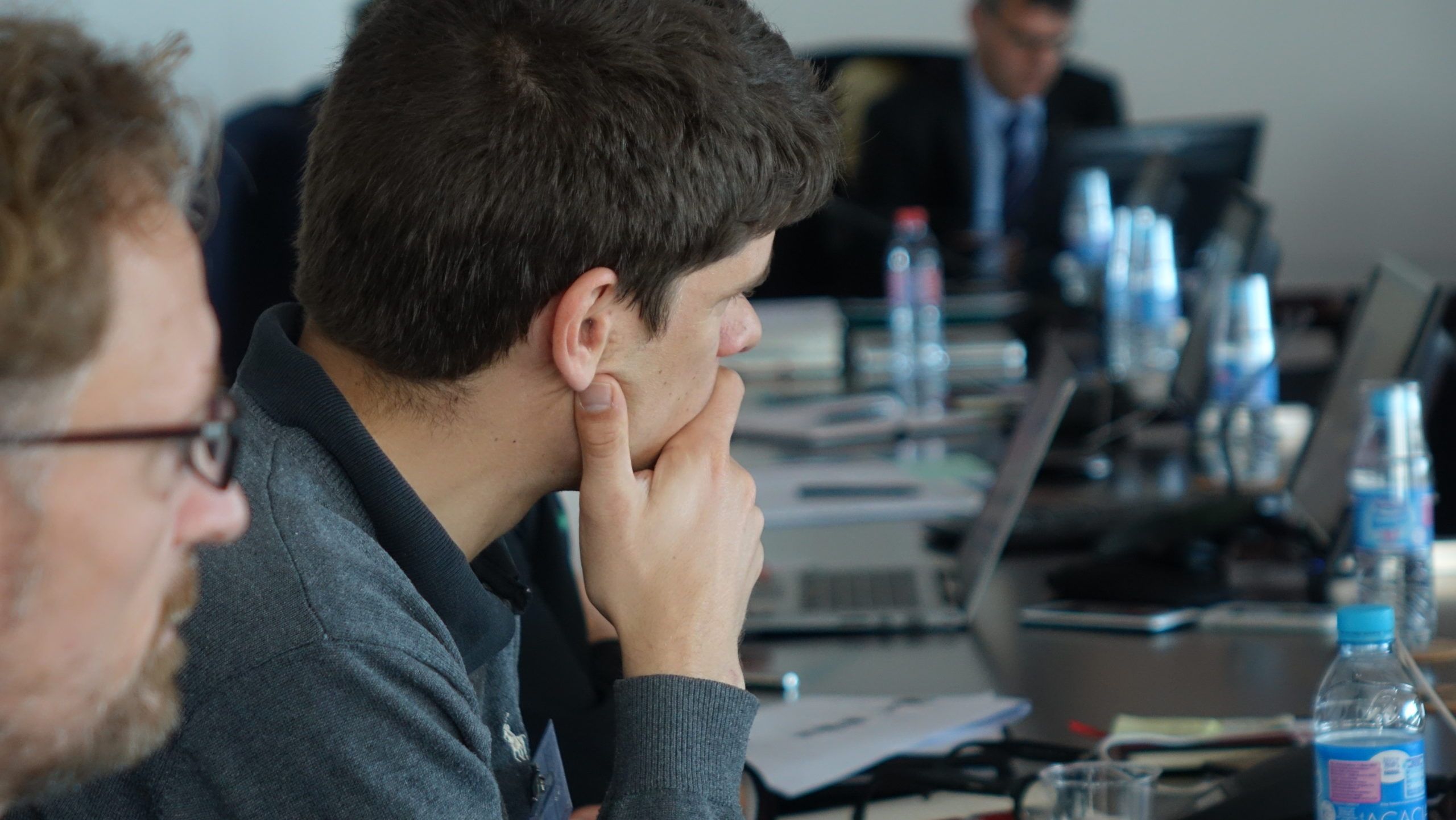Editors note: Christophe Breuillet is the director of Vitagora, a French food innovation cluster. With more than a decade of experience in developing and launching food innovation partnerships, Christophe Breuillet lead the launch in 2016 of Vitagora’s zero-equity foodtech acceleration program, AcceleRise.
Intrapreneurial projects are a way for large companies gain in agility, to the benefit of the whole food and agriculture innovation ecosystem. But current acceleration and support services are focused on, and limited to, startups. Is it time to review our standard accelerator models for the good of our innovation ecosystem?
The challenge of increasing agility
Our food and agriculture business landscape is changing at breakneck speed, driven by changes in consumer behaviors and usages, new technologies, new attitudes. Innovation opportunities are emerging, with large companies losing out to startups and agile smaller market players. In the US alone, between 2011 and 2015, large companies lost $18 billion in packaged food sales to small businesses, according to the Food Institute.
Large corporations have long struggled with the issue of optimizing their innovation processes, balancing an imposed secrecy to preserve their competitive advantage against the potential gains of capturing innovation ideas from outside of the company. In recent decades, open innovation has increasingly been adopted, but in a form that sees incoming and outgoing innovation requests and offers filtered through a dedicated team, or often a single person.
However, from my experience of leading a food innovation cluster with a number of large business members, this has a major flaw: instead of increasing the speed of uptake of new ideas, the open innovation model creates an agility-stifling bottleneck, and does little to liberate innovation projects from the cumbersome weight of large corporations’ regulations and processes.
Intrapreneurship – rewarding risky business
A more recent solution to big food business’s search for agile innovation, and one that is gaining traction in international food companies, is that of intrapreneurship. In the words of Wikipedia, intrapreneurship is “the act of behaving like an entrepreneur while working within a large organization.” More practically, it describes the process of giving employees a high degree of independence by running a corporate innovation project as a de facto startup, and most importantly encouraging, even rewarding, risk-taking.
Within Vitagora’s network, some of the most visible adopters of intrapreneurship are Crédit Agricole, France’s leading bank for the food and agriculture sector, the Poult Group, a French biscuit manufacturer, and the US food giant General Mills.
Although intrapreneurship is not a new concept, I nevertheless find it very much in phase with the current zeitgeist and a positive step towards shaking up stale business culture that is less and less attractive to the newest generations of the workforce. Indeed, an Intelligence Group study of millennials found that 64% say it’s a priority for them to make the world a better place and 72% would like to be their own boss.
So it’s little surprise that large corporations are losing valuable talent and creativity to the path of startup creation where many are making waves in the food industry. By adopting an approach based on intrapreneurship, these companies are taking an important step to retaining talented would-be entrepreneurs in-house.
Intrapreneurship has its own challenges
The main differences between an entrepreneur and an intrapreneur are that the latter is managing a budget that is not his or her own and with an expectation of a high degree of scalability. That aside, the challenges faced are very similar for both. Intrapreneurs, like entrepreneurs, need to surround themselves with a team of complementary skills as well as trusted experts. Having access to the multitude of skills in the company, an intrapreneur’s team can nonetheless be put together very quickly.
Next is the acquisition of additional areas of knowledge, for example in financial management, IP protection, legal or regulatory questions. While entrepreneurs have a plethora of choice for this type of support — incubators, accelerators, business angels, VCs and so on — the intrapreneur has few all-in-one options, outside of ad hoc consulting, that do not require relying on the company’s internal services. Indeed, this runs counter to the principal of intrapreneurship and incurs an inevitable loss of agility and speed, and thus competitive edge, by returning their project to the cumbersome, and highly risk-averse, processes of the mother ship.
A new model of accelerator services
So what can we do to support intrapreneurial projects?
The first port of call is to review our current food and ag accelerator models. Standard equity-based models are a valuable asset to the startup landscape, as are VC funds and associated services, but provide little support to intrapreneurs.
This is where a zero equity, service-driven model, anchored in a relevant business ecosystem, can be of great use. Our goal with the AcceleRise program is to provide an agile solution, easily adapted to a variety of types of businesses we can accelerate – startups, SMEs, spin-offs, intrapreneurial projects.
For intrapreneurs, this means access to the same acceleration support that’s so valuable to startups and allows all the benefits of independent functioning — speed, agility, risk-taking — in coordination with the benefits of remaining part of a large company — rapid scale-up, no individual financial risk for the intrapreneur and so on.
If we can support intrapreneurial projects, should we?
Following more than a decade of building Vitagora’s food innovation cluster, I will answer with a resounding “Yes.” I am convinced of the essential role played by large companies in our regional, national, even international food innovation ecosystem, allowing innovations to gain traction in different markets, and using their scale and resources to give greater ambitions to projects initiated by smaller players, to no detriment of our fabric of startups. Any attempts by larger organisations to gain in agility can only benefit the ecosystem as well as end users and consumers. There is an opportunity for our food and ag accelerators to innovate their service offering and business model to provide these valuable players with the means to enrich this ecosystem as a whole.





